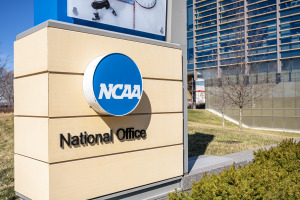
The first legal objection to the $2.8B NCAA antitrust settlement plan comes from Houston Christian
The plan is intended to settle a host of federal antitrust claims and also clears the way for schools to share revenue with athletes, a dramatic step that all but ends the NCAA’s longstanding amateurism model.
















